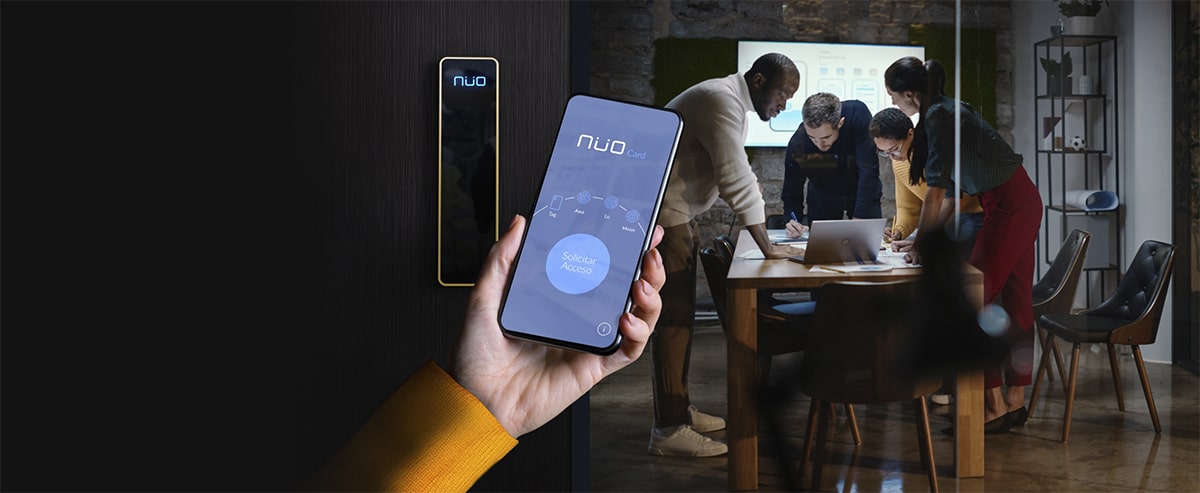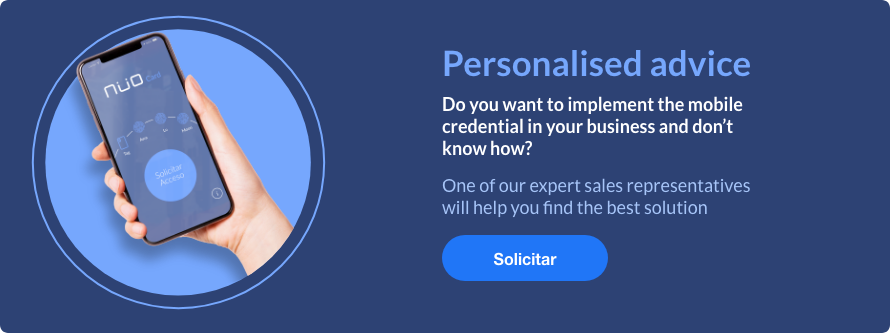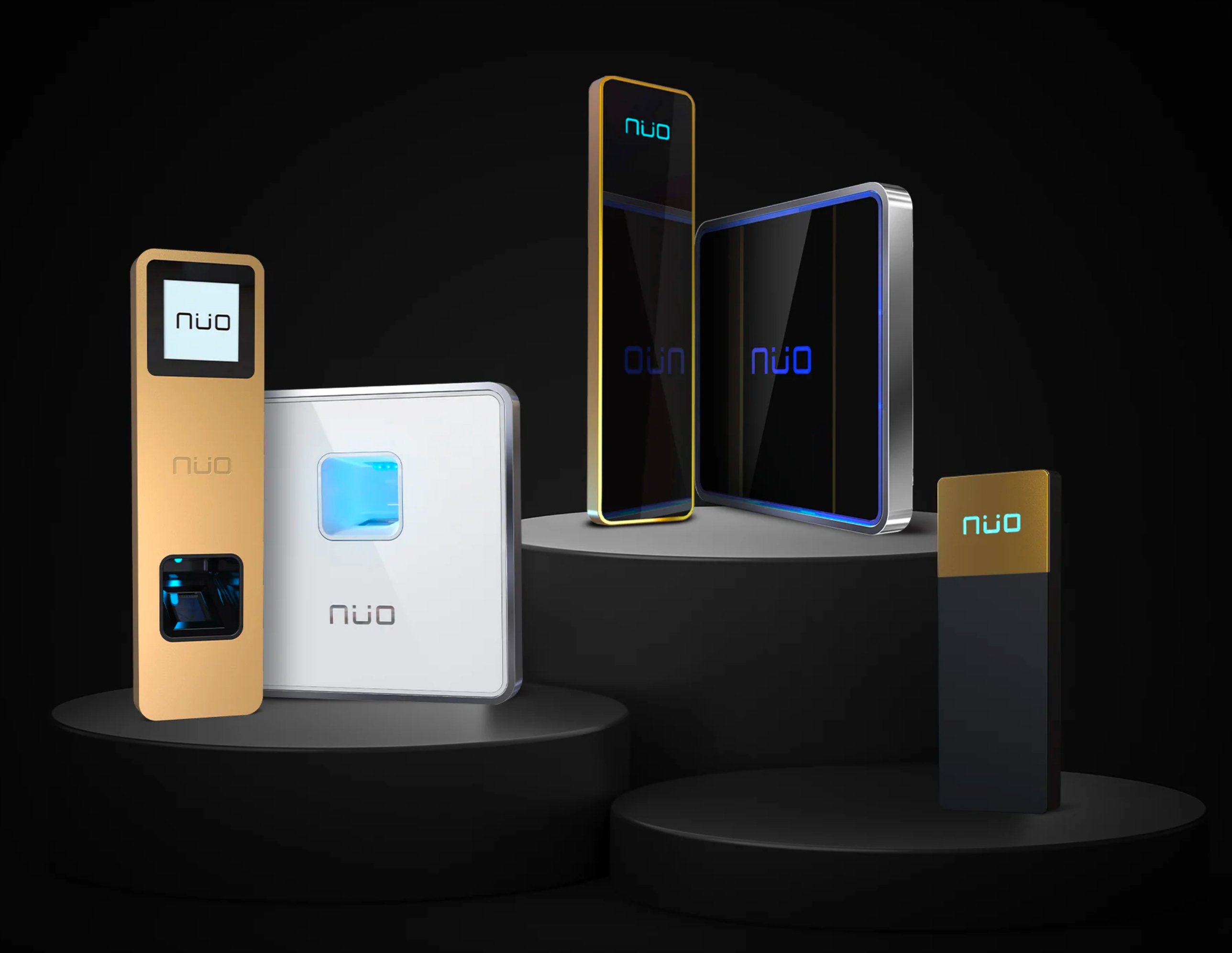Nowadays, smartphones are a big part of our lives. They go everywhere we go; we store all our most important information on them, and we use them to communicate with our loved ones. However, the smartphone is increasingly becoming the tool that makes our day-to-day lives easier: we use our smartphones as bank cards to pay at the shop next to our house, we use it as a QR code to open a restaurant menu, we manage our personal or corporate finances from it, we travel with boarding passes in our digital wallet and we go to the theatre and concerts with our digital ticket. In fact, mobile penetration in the Spanish economy is one of the highest in the world, according to data from DataReportal, as in Spain we have 8.5 million more mobile devices than people.

This widespread use of mobile devices has also reached the world of security systems for homes, offices and industries.
Numerous studies provide statistics on the growing demand for access control systems among companies, offices, industries, large corporate buildings or shops, who are increasingly choosing to secure their spaces with intelligent security solutions that provide them with agility in their daily management tasks, full knowledge and control over everything happens in their business, as well as convenience in the way their employees and visitors gain access on a day-to-day basis.
Every day, an increasing number of individuals and companies are replacing their old keys, code readers and access cards with mobile credentials or fingerprint readers connected to intelligent access control systems. In fact, electronic security and access control via smartphone have developed enormously in recent years.
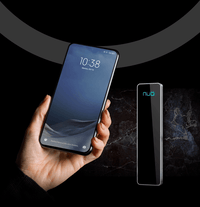
In offices and industries, customers are looking for a better combination of agility and practicality, and as we mentioned at the beginning of the article, the mobile phone is a device that we always carry with us, that we don't forget like our keys or a card or plastic credential, and that can't be easily compromised like a code, or stolen, lost or loaned to third parties outside the company, like we can do with a card. In fact, mobile phones, as we discussed in our article on the Advantages of Access Control via Mobile Device, have a much higher level of security than cards or codes. Mobile phones can be stolen or lost, but they have additional security filters that make them inaccessible in case of theft, leaving your information and access credentials fully protected.
A few years ago, in its annual study, Gartner published that, in 2016, only 5% of companies used mobile phones to give their employees access to the offices, and that in 2020 this figure was expected to be 20%. A figure that is expected to grow exponentially, as companies update their security solutions using mobile phones and biometrics instead of traditional physical access cards, in favour of systems that provide greater convenience, security and agility in their day-to-day tasks.
At NÜO Planet, as leaders in security and access control systems, we have identified the main features that can´t be missing in the best mobile access control systems.
Access Controls: 6 Essential Components
Mobile-activated security and access control systems are the most innovative, effective and personal way to manage the security of your business. As a practical and versatile solution, you will be able to unify all your accesses in a single device in a harmonious, scalable way that offers you maximum security guarantees.
The 6 essential components of the best mobile access control systems are:

They provide a higher level of security
First, mobile access control systems, such as the NÜO Card APP (high security mobile credential compatible with iOS and Android devices), are highly secure as they operate through encrypted communications with complex AES encryption, generated by the NÜO readers themselves, which provides an extra level of security. In the article Advantages of Access Control via Mobile Device we explain in detail why NÜO Card is a high security credential, as well as how data encryption works, guaranteeing the security of the stored information.
However, in addition, the smartphone used as an access key adds several extra levels of security to traditional physical cards, with two-factor authentication, biometric identification, a phone lock code, etc.
And what's more, mobile phones are less "transferable". For example, it is very easy to lend your office card to a colleague so that they can clock in for you, but would you leave your personal smartphone with a colleague?
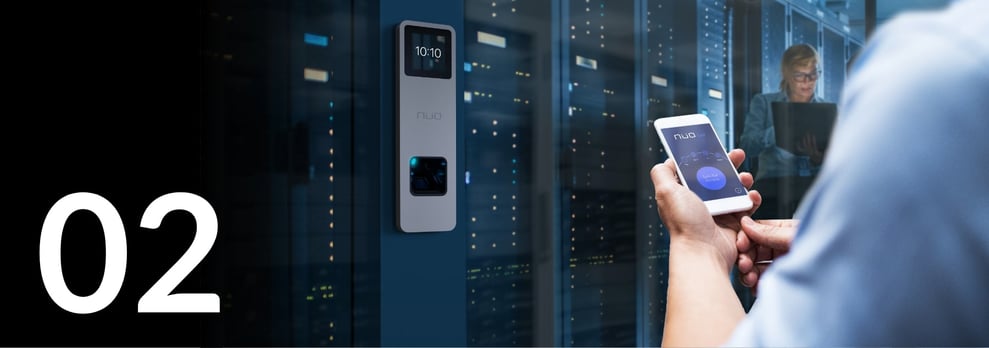
Security as a priority
Although many people are fond of getting the most services out of a single application, access control systems must prioritise security over other services.
There are currently a number of home automation applications that allow you to activate many daily comfort functions or equipment, such as lighting, the thermostat, etc. However, when we talk about the security of your home or your business, you must always opt for professional solutions (and not retail ones) that guarantee the security of your home or business. Remember that you always get what you pay for.
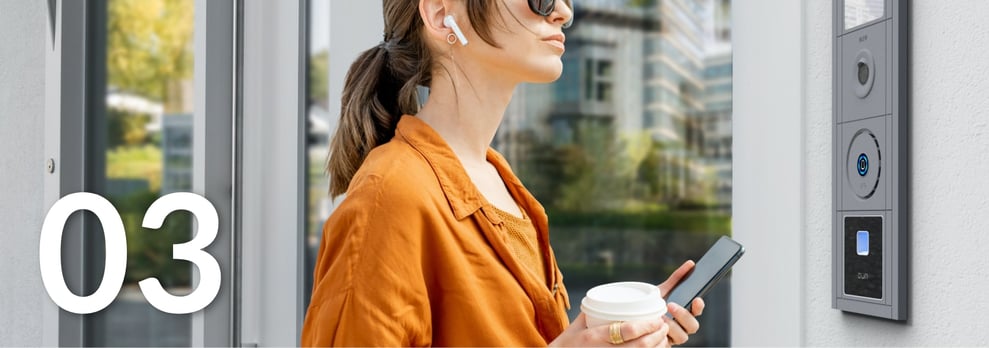
Simplicity as the key to success
A complex, non-intuitive access system or one that requires actions unrelated to an employee's daily routine makes it complicated, ineffective and slows down daily operations. And in the case of mobile credentials, they provide a much higher level of convenience than traditional physical cards: your mobile device is always with you, and it's much more difficult to steal or lose than a card.
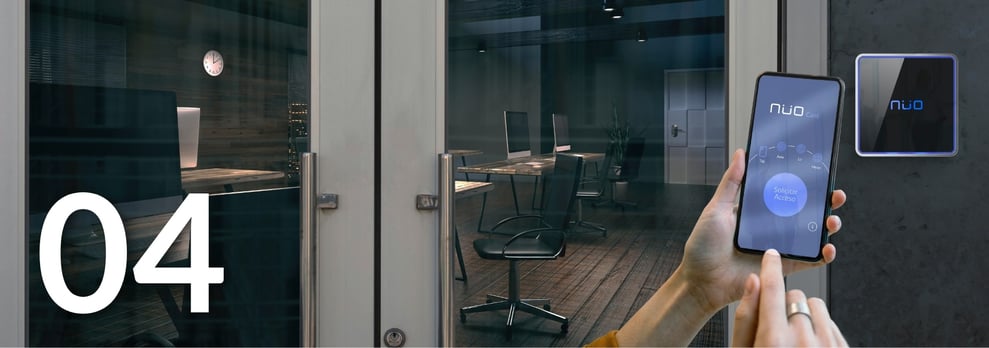
Costs savings
An essential factor with direct repercussions in the daily operations of your business is cost savings. Firstly, access card management is time consuming for staff at the front desk, HR and IT personnel. Mobile access eliminates very tedious and time-consuming tasks such as issuing the cards themselves, reconfiguring them every time permissions need to be changed, deactivating and collecting them, maintaining and replacing them when lost or damaged, etc.

In your language
Access control in a language other than the one used by the majority of your employees can be a barrier to using this type of security system. That's why all the functions, commands and notifications must be programmed to be presented in your language and in the one that your employees and collaborators most frequently use.
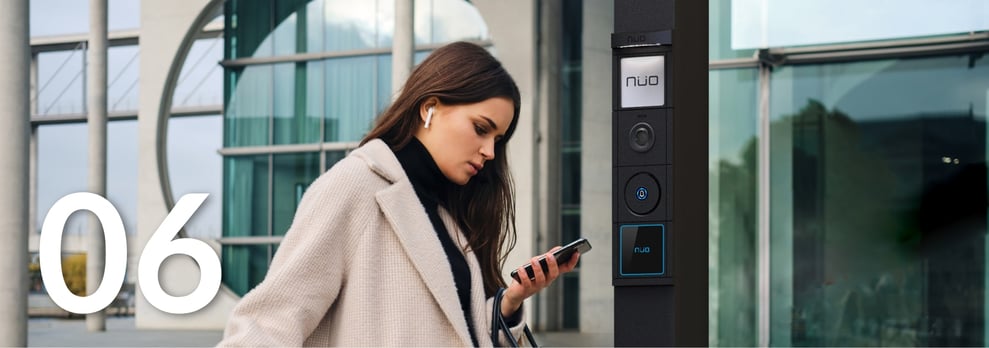
Scalable, hierarchical and modifiable in one click
It is very common for companies to hire new employees, have other employees leave, create new entry points or require changes in the hierarchy of employees.
Mobile access control systems must allow these changes to be done simply, quickly and in real time by an authorised operator or a member of management.
This allows the company's daily operations to not be affected by modifications, updates or changes in human resources. In the same way, the system must allow users to be removed or registered immediately for reasons of security and versatility, with all this taking effect in real time.
Escrito por: NÜO Planet
Categorías: Access Control, Installers, Mobile credential
